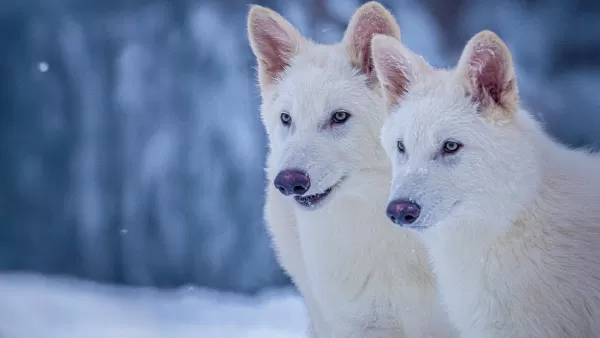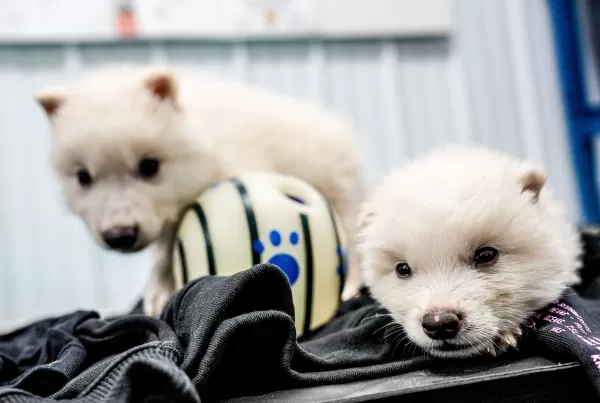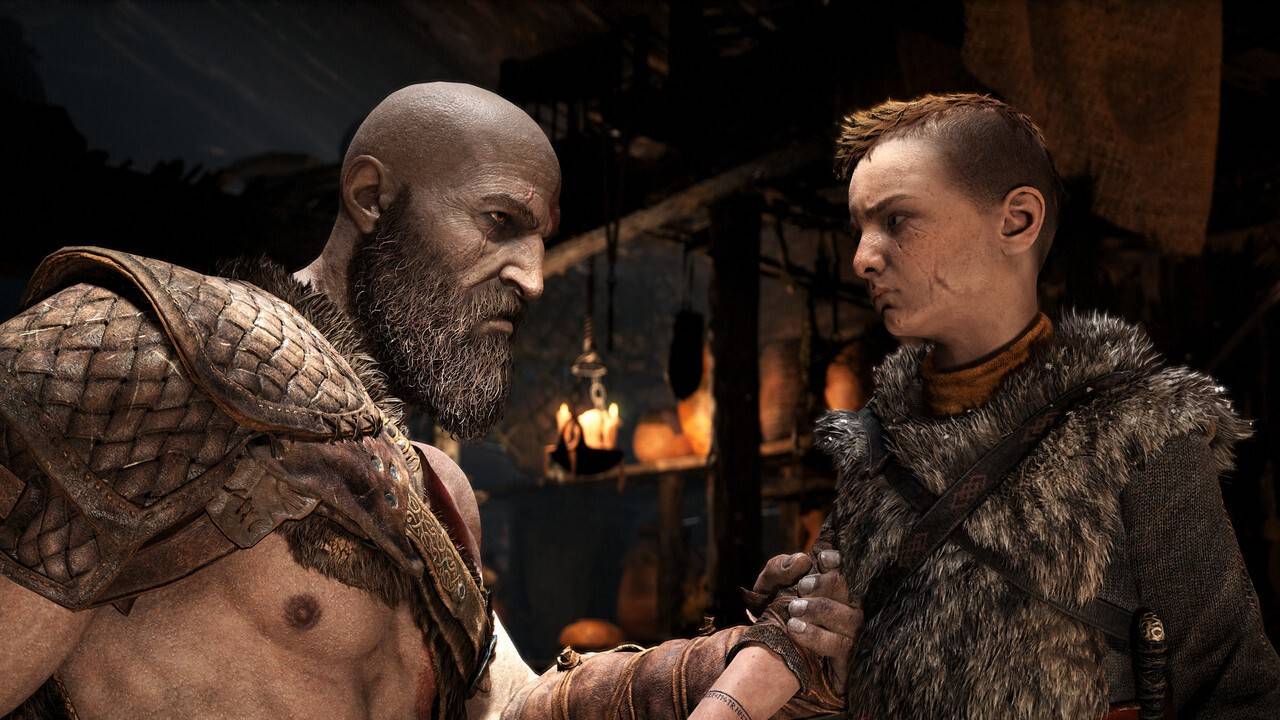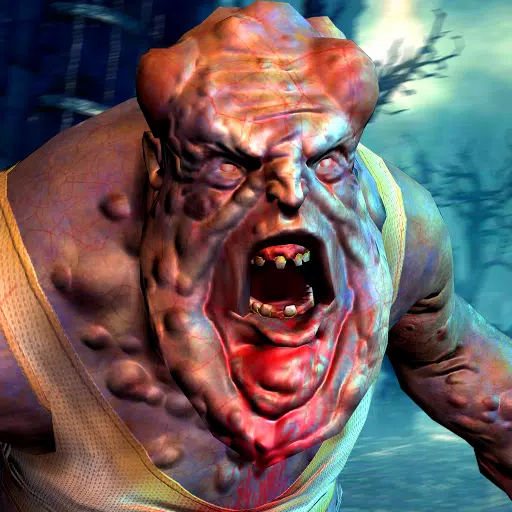Bringing a super-sized canine back from extinction after 12,500 years might sound like the plot of a blockbuster movie filled with special effects, gnawed flesh, and buckets of fake intestines. However, it's a reality thanks to the efforts of the biotech company Colossal Biosciences. They've successfully reintroduced three dire wolves into the world, now residing in a secret location within the United States.

Colossal Biosciences, driven by a passion that seems to rival that of Game of Thrones fans, utilized DNA from the common gray wolf, gene-editing techniques, and domestic dog surrogates to bring Romulus, Remus, and their younger sister, Khaleesi, into existence. These dire wolves are the epitome of what any mother of dragons could wish for: huge, white, and undeniably awe-inspiring.
Ben Lamm, CEO of Colossal, expressed immense pride in his team's achievements, stating, "This massive milestone is the first of many coming examples demonstrating that our end-to-end de-extinction technology stack works." He further elaborated on the process, saying, "Our team took DNA from a 13,000-year-old tooth and a 72,000-year-old skull and made healthy dire wolf puppies. It was once said, 'any sufficiently advanced technology is indistinguishable from magic.' Today, our team gets to unveil some of the magic they are working on and its broader impact on conservation."

Colossal Biosciences isn't new to making waves in the scientific community. They previously engineered a Colossal Woolly Mouse, designed to mimic the mammoth phenotype, using computational analysis of 59 woolly, Columbian, and steppe mammoth genomes ranging from 3,500 to over 1,200,000 years old. Despite their achievements, the company faces criticism, with some arguing that the dire wolves are essentially normal wolves in elaborate costumes. Critics claim that the existing dire wolf DNA isn't sufficient to create a true genetic clone.
The company's goals extend beyond creating social media sensations or owning extraordinary pets. Colossal Biosciences aims to leverage its findings to enhance the preservation of Earth's current wildlife for future generations.
Dr. Christopher Mason, a scientific advisor and member of the board of observers for Colossal, emphasized the broader implications of their work, saying, "The de-extinction of the dire wolf and an end-to-end system for de-extinction is transformative and heralds an entirely new era of human stewardship of life. The same technologies that created the dire wolf can directly help save a variety of other endangered animals as well. This is an extraordinary technological leap in genetic engineering efforts for both science and conservation, as well as the preservation of life, and a wonderful example of the power of biotechnology to protect species, both extant and extinct."
Regarding the dire wolves, Colossal Biosciences has collaborated with the American Humane Society and the USDA to ensure their well-being on a 2,000+ acre preserve, where they are cared for by a dedicated team of staff.
























![City Devil: Restart [v0.2]](https://img.icssh.com/uploads/38/1719554737667e52b102f12.jpg)




